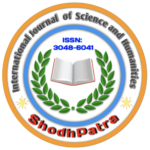| Article Title |
Michel Foucault’s Genealogical Method: A Critical Exploration |
| Author(s) | Dayanand Dwivedi. |
| Country | India |
| Abstract |
Michel Foucault introduced a novel approach to studying philosophy and history by connecting contemporary concepts and practices to the underlying power structures through his genealogical method. In order to understand how concepts and thoughts evolved, the historical movement known as genealogy challenges linear thinking by looking at the intricate beginnings of books like Discipline and Punish and The History of Sexuality: The Will to Knowledge Vol. 1. The goal of the analysis is to assess the genealogical method's theoretical underpinnings, logistical relationship to Foucault's earlier archaeological method, practical use, outcomes, and limitations. By reconsidering the evolution, the method not only disproves earlier assumptions but also produces useful insights into historical transition. It destroys the present as well. Despite its acknowledged shortcomings, this presentation demonstrates how genealogy remains a powerful tool for analyzing power structures and demonstrating how to counter popular historical narratives. |
| Area | Philosophy |
| Issue | Volume 2, Issue 5 (May 2025) |
| Published | 03-05-2025 |
| How to Cite | Dwivedi, D. (2025). Michel Foucault’s Genealogical Method: A Critical Exploration. ShodhPatra: International Journal of Science and Humanities, 2(5), 11-19, DOI: https://doi.org/10.70558/SPIJSH.2025.v2.i5.45175. |
| DOI | 10.70558/SPIJSH.2025.v2.i5.45175 |
ShodhPatra: International Journal of Science and Humanities

 View / Download PDF File
View / Download PDF File